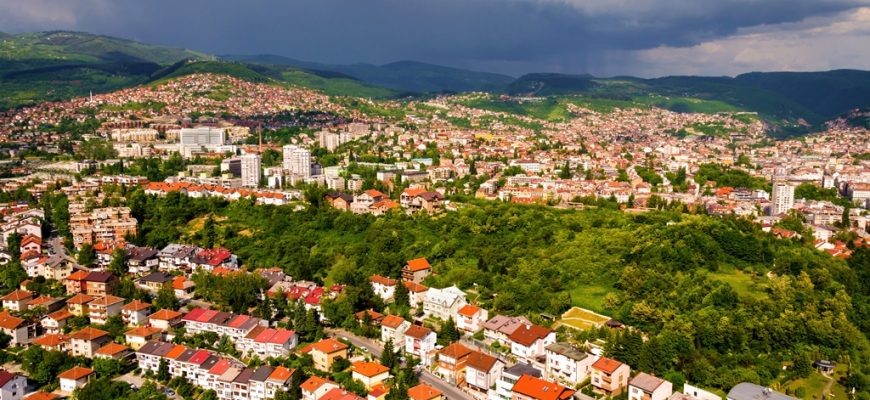The Role of Women in Peace Building by Prof. ZILKA SPAHIC-SILJAK (engl.)
- ffwpu.austria@gmail.com
- 31. Juli 2020
- 3 Min. Lesezeit
(speach at online conference: Role of Women in Peacebuilding and conflictresolution, June 5th, 2020)
Prof. Zilka Spahic covered the subject from two aspects:
The role of women as mothers
How and why women’s peace building should be coupled with sustainable development
The role of women as mothers

Both men and women need to understand the challenges and responsibilities of building peace together. Peace is an ongoing process and a way of life. When we desire peace, we have to work for it, invest in it and not expect others to do the work for us.
With respect to peace, it is not enough to care only for our community or country, as peace concerns the whole world. As human beings we all have this calling. Peace building starts with the individual and encompasses things, such as listening attentively, taking a stand against injustice, encouraging those who need it. These are all means of peace building.
Motherhood as a concept is closely linked with peace building. Spahic-Siljak refers to Sara Ruddick, a feminist philosopher, who wrote the book “Rationality of Care”. Mothers naturally sense the needs of others and feel compassion. However, caring qualities are not exclusive to women. Men also can be just as sensitive to others. Relationships are crucial since they are the basis for both conflicts and their long-term solutions.
During the wars and post war eras women experienced building and rebuilding relationships. The peace researcher, John Paul Lederach, described the quality of “moral imagination”, a characteristic he found in women globally. This means envisioning the unseen or unknown. It involves the ability to imagine people in other countries as brothers and sisters transcending all boundaries. Living with this awareness inevitably leads to one being caught between cultural, social and religious norms. Hence, “moral imagination” results in “moral dilemma”, which requires moral choices. Hence, when protecting those whose lives are at risk in conflict zones, women are frequently confronted with the thought and traditions of their own community.
Spahic-Siljak’s studies indicate that Bosnian women see themselves as experts in combining the well-being of the individual with the norms of the environment. In her research on women in Bosnia during and after the war, she discovered that women are key peace leaders in their immediate social environment, whereas men are negotiators at higher levels. However, all areas are interconnected. Hence, sustainable peace can only be realised when peace prevails both locally and globally.
Generally speaking, women who are used to caring for others can embody different aspects of justice and compassion, which are important factors for peace building.
Peace is a woman and a mother.
How do I know peace is a woman?
I know, for I met her yesterday on my winding way to the world’s fair.
She had such a sorrowful face, just like a golden flower fading before her pride.
I asked her why she was so sad.
She told me her baby was killed in Auschwitz, her daughter in Hiroshima and her sons in Vietnam, Ireland, Israel, Palestine, Lebanon, Ruanda, Bosnia, Kosovo, Sudan, and Chechenia.
All the rest of her children, she said, are on the nuclear black list of the dead – all the rest – unless the world understands that peace is a woman.
A thousand candles lit in her staring eyes and I saw angles wearing a moon white message:
Peace is indeed a pregnant woman. Peace is a mother.
“This poem reminds us of what is important.” says Spahic – Siljak, concluding her first part.
How and why women’s peace building should be coupled with sustainable development
There is no sustainable development without peace and there is no peace without sustainable development.
When women lack essentials and are preoccupied with providing for the needs of their families, they cannot attend to such topics as human rights, peace building and conflict resolution. First and foremost, women need support to care for their families after which they can engage in peace building. Both levels have to be linked. When women merely receive economic help excluding the peace-building dimension, communities miss individuals sensitized to the needs of others at an extended level. Women should be involved at all stages as they are affected by conflicts and peace agreements in different ways from men.
There is no justice in excluding women (who comprise 50% of the population) from decision-making processes and policy formulation. Women participating in peace-building understand the roots of conflicts in practical terms, such as education, health and other areas of need in the community.
Furthermore, women leaders should be gender sensitized, meaning they should be aware of the concerns of other women. Economy and peace are linked and interdependent. People with an adequate income are enabled to live in dignity and give back more. The term ‘social capital’ is used to refer to those who can accumulate economic assets to provide for themselves and invest in the development of their community.
“The coupling of economic development with peacebuilding and sustainable development leads to great success, which is known from experience”.
Zilka Spahic- Siljak concludes her presentation.








Kommentare